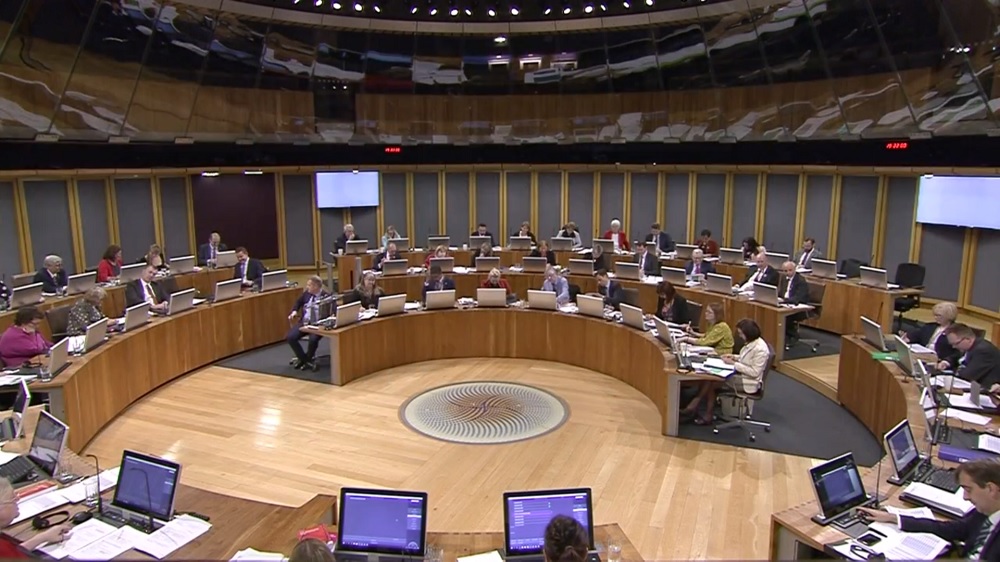How the Welsh Parliament was set up to fail when it was called an ‘Assembly’

Tobias Wells
In 1997, Scotland and Wales both had referendums on devolution that were superficially similar.
Yes, both these referendums asked if the voters if they wanted devolution, but they were asked in subtly different ways that were nonetheless significant.
In Wales, voters were asked: “Do you agree that there should be a Welsh Assembly as proposed by the Government?”
The Scottish were asked a similar question: “Do you agree that there should be a Scottish Parliament as proposed by the Government?”
There was a difference of one word – a word which I believe altered the courses of two nations. This word was “assembly”.
The words “assembly” and “parliament” convey very different meanings. Of course, we all know of the assemblies we had in primary and secondary school.
We also all know of the Parliament that sits in Westminster, creating and voting on the laws which govern our nation – which is currently the United Kingdom. This is why the referendum was so damaging.
The offer of a “Welsh Assembly” is confusing and its implications are unclear. However, we all know what a Parliament is, and we all know what a Scottish Parliament would entail.
‘Voted’
Nonetheless, the Welsh voted for their Assembly by a margin of 0.6%. This was from a turnout of 50%. Looking at the number of eligible voters in 1997, this means that only 25.1% of the electorate voted for it.
Can we say that Wales voted for the Assembly when there was only a difference of 0.6%? Can we say that Wales voted at all since only half of the people turned up to vote?
Worse, when the Assembly was established, the powers were unclear. Of course, the Welsh Assembly knew that they could not implement primary legislation but, honestly, ask yourself if the average voter even knows what primary legislation is – the answer should be obvious.
The evidence of an impotent Assembly is staggering. Just look at the 5p carrier bag charge. Most didn’t understand why only Wales had to deal with this until the rest of the UK implemented it. More worrying is that the Welsh Government didn’t even have the capacity to collect tax until 2016 – six years after the bag tax.
This meant that millions in potential taxes were instead donated to charity. While certainly, this isn’t the worst fate of those millions of pounds, is it really best for the government of a nation to not be able to collect taxes until 17 years after its establishment?
This could partially explain why turnout has been dropping since its peak in 1999 (the year of the first elections).
It could be because people see the Welsh legislature and Government, whether it be the National Assembly for Wales as nothing more than an ineffectual body. This breeds apathy and the democratic mandate of the Senedd to continue to exist is thrown into limbo.
‘New country’
Let’s compare this death of a democracy to the birth of a new country. The Scottish people were very simply offered a Parliament and over 74% of people voted for it. Adjusting for the turnout of 60%, this means that 44% of people voted for it. This is very typical, and the recent Conservative majority born out of the 2019 election was won on only 43% of the vote.
The areas in which the Scottish Government could make law were clear and the autonomy of Scotland in the UK was firmly established. In the 2016 Scottish Parliament elections, the turnout was 55% – a decent number.
The fact that there have been different parties in government and regular opinion polling on the Scottish Independence question suggests that casual political discussion is prevalent within Scotland’s public and shows that the Scottish are supportive of their representative democracy and they themselves are the informed voters people love.
In both Scotland and Wales, there are obviously improvements to be made – no nation is perfect, and a nation’s politics never gets close to even being bearable. I think the first step to improving democracy in both nations and, in particular, re-energising the Welsh is changing the voting system.
Changing the voting system to ‘Single Transferrable Vote’ would completely change the ballot. The Welsh Government would be forced to tell people how this works and the Welsh electorate would be forced to ask how to vote.
Even though forced, this would represent communication between state and public – the first to be done in Wales, and hopefully setting the record straight for good. Just because Welsh devolution was meant to fail does not mean that it must.
Support our Nation today
For the price of a cup of coffee a month you can help us create an independent, not-for-profit, national news service for the people of Wales, by the people of Wales.





